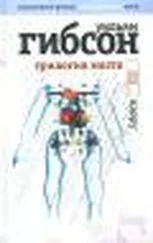On the walk back to Joe-Eddy’s, Eunice demo’d feeds from all five cams. Nothing happening in Joe-Eddy’s, nobody there, just that horror-movie feel of any unoccupied webcam feed. The one in the kitchen watched the table and the window, this last still open a crack, just as Eunice had had her leave it, for the drones. “They left fruit?” Verity asked, noticing a bowl with apples, two bananas, a pear.
“My guy,” Eunice said. “I had someone drop by before they came. You didn’t have much in the fridge.” The feed disappeared. “We’ll stay in tonight. They’ll get a show. Script’s all ready.”
“Script?”
“What they’ll hear as your side of whatever we actually talk about. They still can’t hear me. If your mouth’s on camera, post’ll fix it so a lip-reader sees whatever we have you say.”
“Seriously? How’d they get in?”
“Brought a locksmith.”
“How’d your guy get in?”
“Made keys from images I’d captured of yours.”
Eunice’s drones, the two that had accompanied them to Stets’ place, which had both wound up, in 3.7, under the lapels of Verity’s blazer, were now aloft on Valencia, though Verity wasn’t getting their feeds.
When they reached Joe-Eddy’s, she took her keys from her purse, imagining Eunice image-capturing them, with either Joe-Eddy’s cam or the drones. She let herself in, the two drones ducking past, on either side of her head, and up the stairs. Closing the door behind her, she turned the deadlock, and slid the bolt into place, this last more satisfying than previously.
She climbed the stairs, uncomfortably remembering the man Eunice had shown her in Joe-Eddy’s living room, one of the two who’d planted the cams. She unlocked the apartment door.
Just inside, in Ikea’s cheapest black aluminum frame, hung a comically moody black-and-white group portrait of the Fuckoids, Joe-Eddy’s late-nineties band, Joe-Eddy himself posing with the Japanese Jazzmaster that now hung on the far wall. The photo was something she was so familiar with that she ordinarily didn’t see it. Now though, it hung level, as it only did when someone had just straightened it, since vibration from passing traffic would almost instantly have it crooked again. Had the guy with the wire-rims straightened it, or whoever he’d been with?
“Don’t,” Eunice said, “or he’ll know you noticed.”
Verity’s hand was raised, to restore the Fuckoids’ customary lack of kilter. Now she brushed her hair back with it instead, and kept walking. “Who’ll know?” she asked, when she reached the kitchen.
“Pryor,” said Eunice. “The one I showed you in the living room. Bad news.”
When Netherton opened his eyes, after the call with Janice, he saw Rainey seated at the other end of the couch, her eyes closed. Studying, he assumed, the Qamishli time line Lowbeer had sent. He watched her, savoring her small fleeting expressions, her concentration, the seriousness he hadn’t known she possessed when they were still only colleagues. He resisted the urge to move closer, to take her hand.
Her eyes opened, met his. “Imagine being a parent in that. Did Lowbeer explain it to you?”
“The aunties,” Netherton said, “expect nuclear war.”
Thomas began to cry, from his crib.
She stood. “Absolutely horrible.”
“We’re trying to stop it,” he said, realizing to his surprise that actually, to whatever extent, they were.
23
Not Trusting in the Glitch
After reheating beef lasagna, from Eunice’s restock of the fridge, she ate at the kitchen table, watching the drones sneak in and out, via the open window, fussily navigating 3D geometries she guessed kept them off-camera to Cursion. To whatever extent they weren’t, she supposed, Eunice’s postproduction would erase them, showing Cursion a drone-free kitchen.
After she’d eaten, she decided to shower, anticipating actual nonvirtual privacy behind the La Sirenita curtain that matched Joe-Eddy’s towels. Remembering where Eunice had shown her the bathroom’s faux-Robertson head was, she put the tactical bathrobe on over her clothing, her back to the cam, then awkwardly undressed. Getting behind La Sirenita , she discarded the robe and her t-shirt, reaching out to hang them where they could easily be retrieved. She showered, until the hot was almost gone, then hooked the robe back in, put it on, pulled the hood up, got out, and brushed her teeth in front of the mirror.
More of me, all the time. Doesn’t feel bad. Just different.
Verity helped herself to a swig of Joe-Eddy’s naturopathic mouthwash and started swishing. Counted to twenty before she spat it into the sink. “Cam in here still glitching?”
Eunice showed her a feed of the bathroom, featuring an inconstant vertical oblong in front of the mirror, the color of the tactical robe.
She went into the bedroom, to the closet, selected a change of clothes, then back to the bathroom, where she toweled her hair semidry and started dressing with the robe over her shoulders, not trusting in the glitch.
Madison wore wire-rimmed spectacles with colorless resin lenses. Not as historicist affectation, Netherton remembered, but ground to optically correct for some defect in his vision.
Solemnly amicable, his upper lip entirely concealed by a wide, brushlike mustache, Madison seemed, as Flynne had more than once said, to have had all of his glands removed. Seated in Janice’s workstation chair, he lifted the Wheelie Boy into view, a tablet atop an aluminum rod, rising from a spherical plastic chassis the size of a large grapefruit, with a lug-tired plastic wheel on either side. “Got your little guy here,” he said.
“Whenever you’re ready,” Netherton said.
Madison touched the base of the Wheelie’s chassis, causing an oddly angled view of the living room to fill Netherton’s field of vision, which straightened then, when Madison placed the Wheelie on the floor before him, upright on its two wheels.
“Envy you always having your phone with you,” Madison said. “Never cared for wearables myself, so I’m still carrying mine.”
Having had his implanted when he was too young to recall the procedure, Netherton regarded the residents of the county as essentially phoneless. They wore them variously or, like Madison, carried units resembling a small tablet, all lacking the most basic neuroconnectivity.
Now he tried his tongue tip on the roof of his mouth, the backs of his front teeth, reacquainting himself with the Wheelie’s steering. Responding, it rolled forward, the height and angle of its cam causing Madison’s beige plastic clogs and white socks to loom. He tilted the camera up and back.
“After you,” Madison said, raising his arm to point.
Netherton, already more at home with the controls, tongue-tapped the sequence required to make the wheels briefly rotate in opposite directions, the tablet turning to face the front door, open except for a frame supporting fine plastic mesh, intended to exclude flying insects. Through that, now, the morning sunlight of the county’s summer. Madison rose from his chair and went to hold the framed mesh open, as Netherton steered the Wheelie out, swiveling the tablet for a better view. “You and Janice never wanted to move out to the compound proper?”
“Flynne’s banned calling it the compound,” Madison said, “proper or otherwise. For the reason you just called it that. The world’s being run out of it. We’ve been happy to stay right here and still be able to help.”
Netherton rolled farther out onto the porch, Madison following. “Rainey says it saddens her, that things here are so heavily stage-managed. Do you and Janice feel that way?”
Читать дальше








